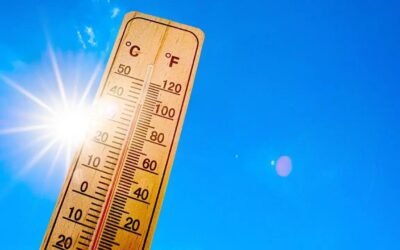Prolonged exposure to heat may impact school children`s learning ability: Study

A study has described how prolonged exposure to heat — especially under increased global warming — can impact cognition of school children, affecting long-term learning and the ability to handle complex tasks.
Researchers from the Royal Melbourne Institute of Technology and University of New South Wales in Australia reviewed data from seven previously published studies involving nearly 14.5 million students from 61 countries, including India.
Findings published in the journal PLOS Climate point to impacted learning capacity of students under a long-term exposure to heat, with performance in complex tasks, such as mathematical, hit harder than that in simpler ones, including reading.
As the planet continues to get warmer, deficits in learning abilities among the youth can accumulate, potentially reducing the “capacity of young people to undertake intensive cognitive activities”, the authors said.
Equity and quality of life of the vulnerable, low-income population — which is unable to protect itself from climate change — will be affected, the team said.
They added that societal disparities will be widened and economic progress hampered in the less developed nations which are more exposed to heat.
Two of the seven studies that the researchers reviewed — pertaining to primary school students in India — found that one additional day in a previous year with an average daily temperature higher than 29 degrees Celsius impacted reading and mathematical abilities, compared to a day with a temperature between 15-17 degrees Celsius.
Ten such days in a previous year were “found to reduce reading scores by 0.02 and mathematics scores by 0.03”. Data for mathematics and reading test scores were taken from the Annual Status of Education Report (ASER), a nationwide survey of rural households to assess children`s schooling and learning.
Story reading and division skills in mathematics reduced by one percentage point, the authors said.
The analysis also used data from the Young Lives Survey (YLS), a UK-funded long-term study of poverty and inequality among 12,000 children from Ethiopia, India (Andhra Pradesh and Telangana), Peru and Vietnam.
“These results were statistically significant, with the impact of hot days being significant only for the harder questions in both reading and mathematics tests,” the researchers wrote.
They also said, “The social cost of global overheating on human capital associated to the potential reduced capacity of young people to undertake intensive cognitive activities, will unfortunately affect equity and quality of life of vulnerable and low-income population unable to be protected from the climatic phenomena.”
“It will accelerate societal discrepancies and will impede economic progress in less developed countries suffering from excessive heat exposure,” the team wrote.
This story has been sourced from a third party syndicated feed, agencies. Mid-day accepts no responsibility or liability for its dependability, trustworthiness, reliability and data of the text. Mid-day management/mid-day.com reserves the sole right to alter, delete or remove (without notice) the content in its absolute discretion for any reason whatsoever
Search
Recent
- Video reunites ex-cop with family: Salute in Bhopal old-age home goes viral; long-lost son found
- ‘Fake guarantee’: ED arrests BTPL’s Partha Biswal; will confront him with Anil
- ‘Detonate it’: Rajnath to Rahul on ‘atom bomb’ of proof on ‘vote chori’ claim
- Op Mahadev: Pahalgam attacker’s funeral in POK confirms Pak role; locals bar LeT presence
- At PGI, new hope to rein in type-2 diabetes





